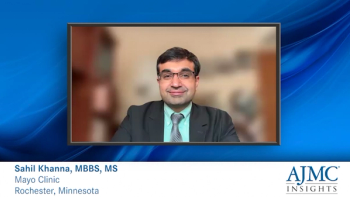
The panelist discusses how recurrent Clostridioides difficile infections represent a critical health care challenge, characterized by unmet needs in long-term prevention, microbiome restoration, and personalized treatment. The field is evolving toward precision medicine approaches, leveraging advanced diagnostics, innovative therapeutic modalities such as engineered probiotics and bacteriophage therapies, and comprehensive strategies that integrate microbial, immunological, and genetic insights to improve patient outcomes.



